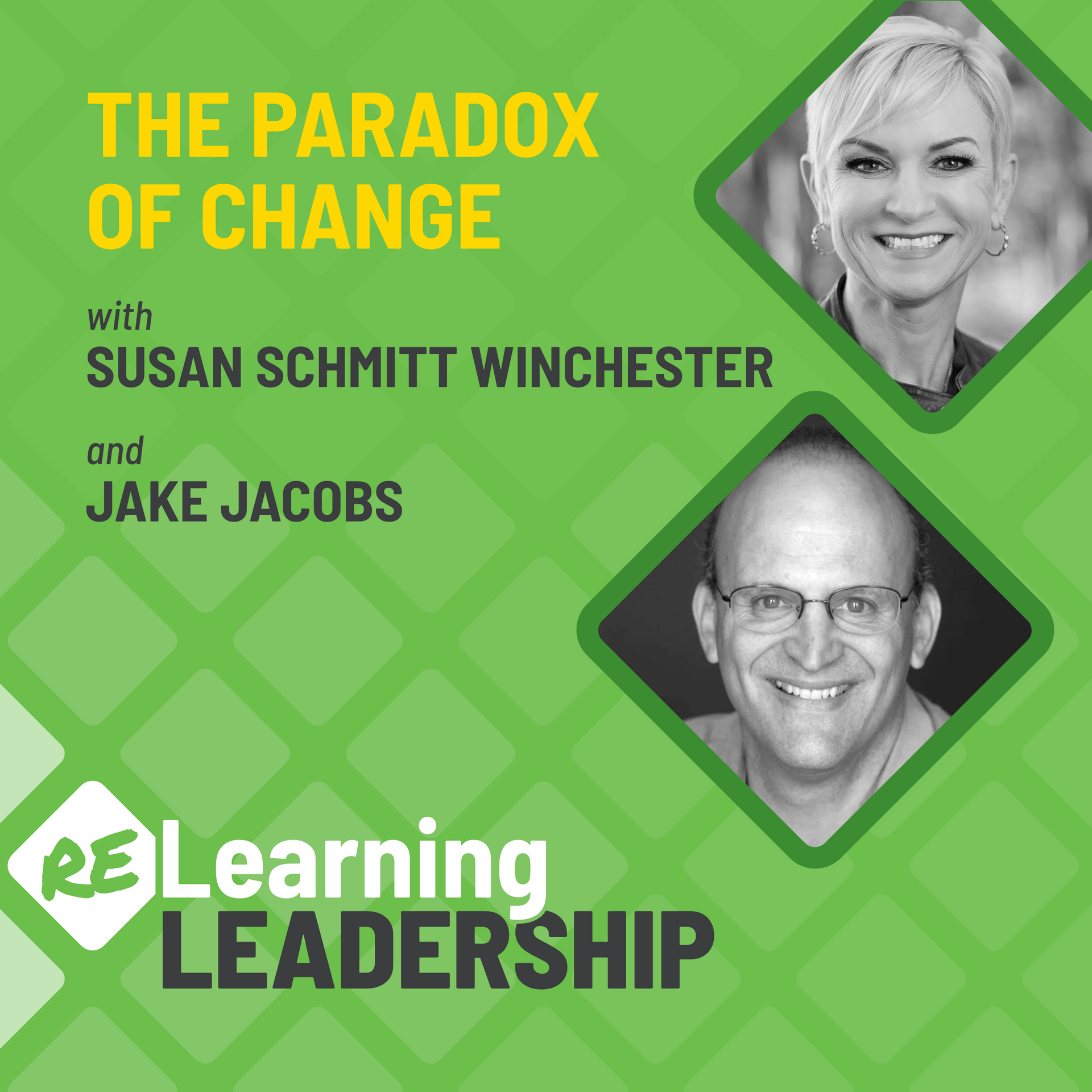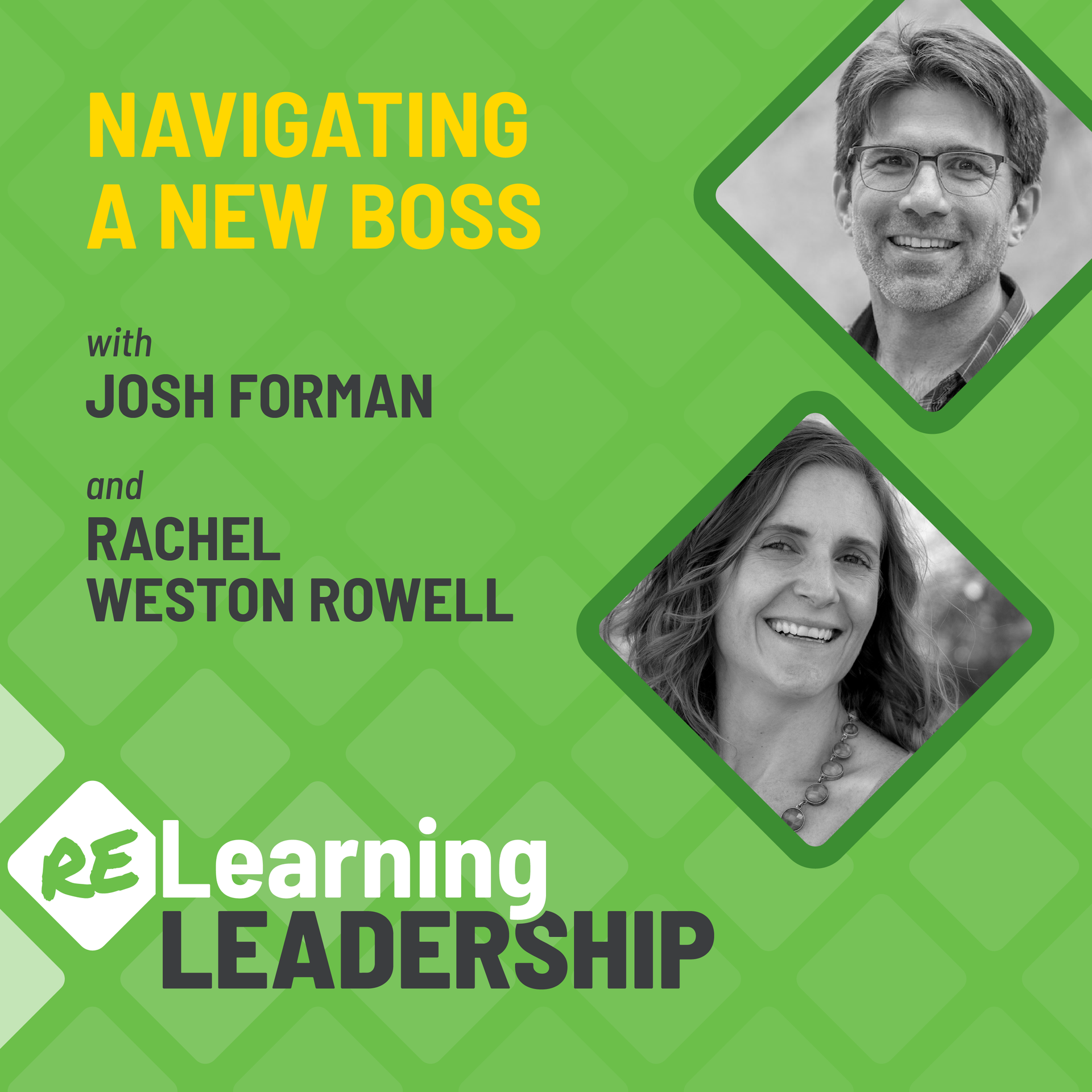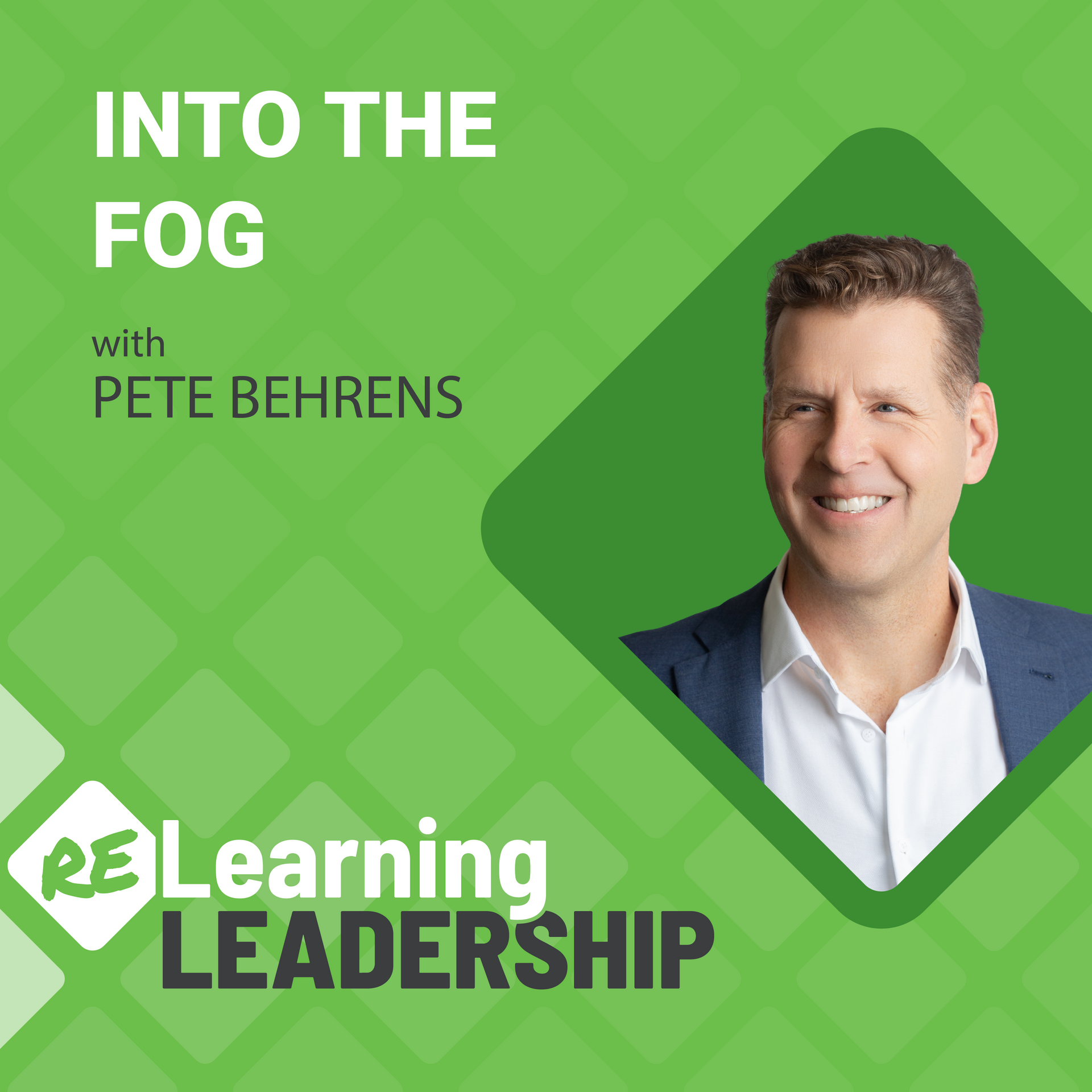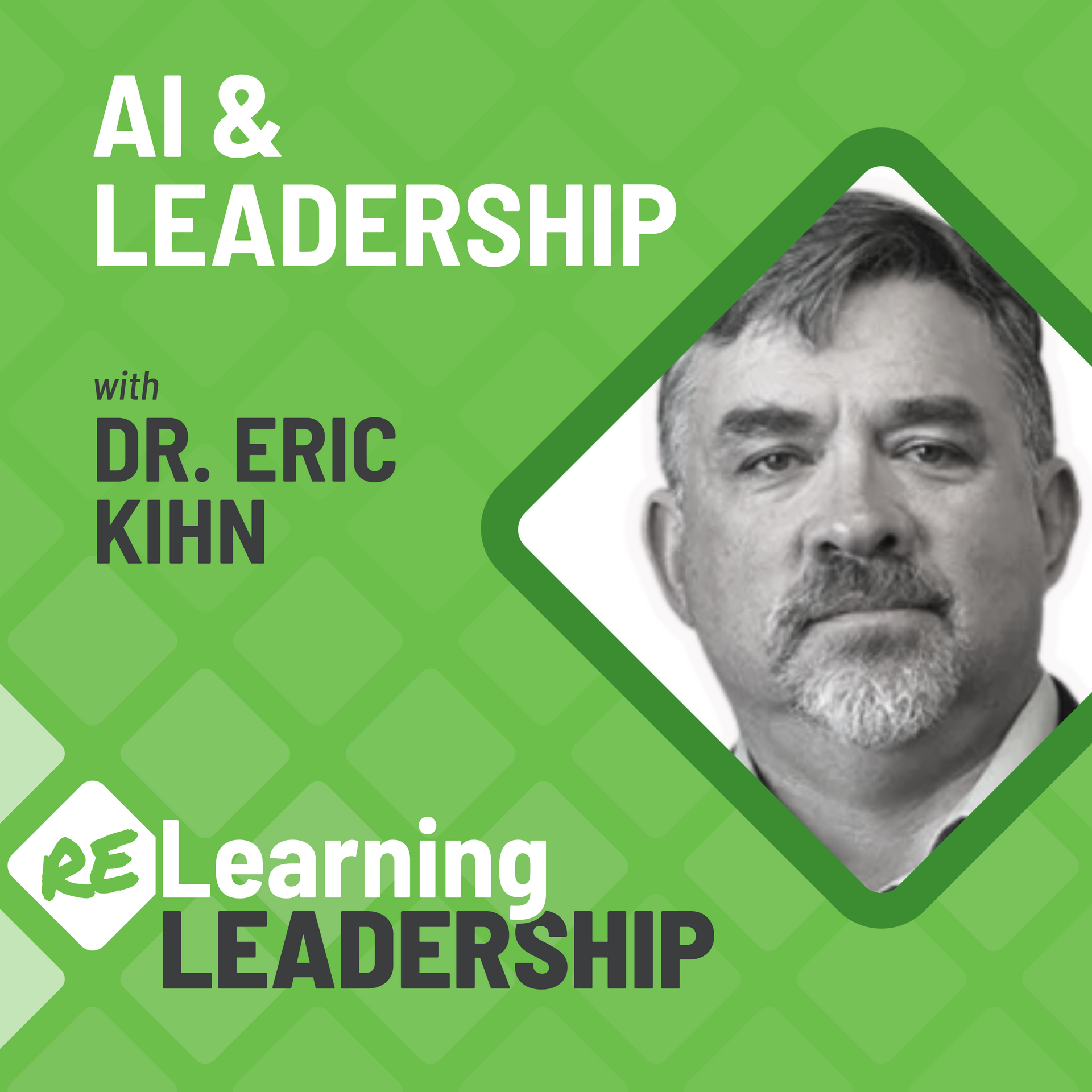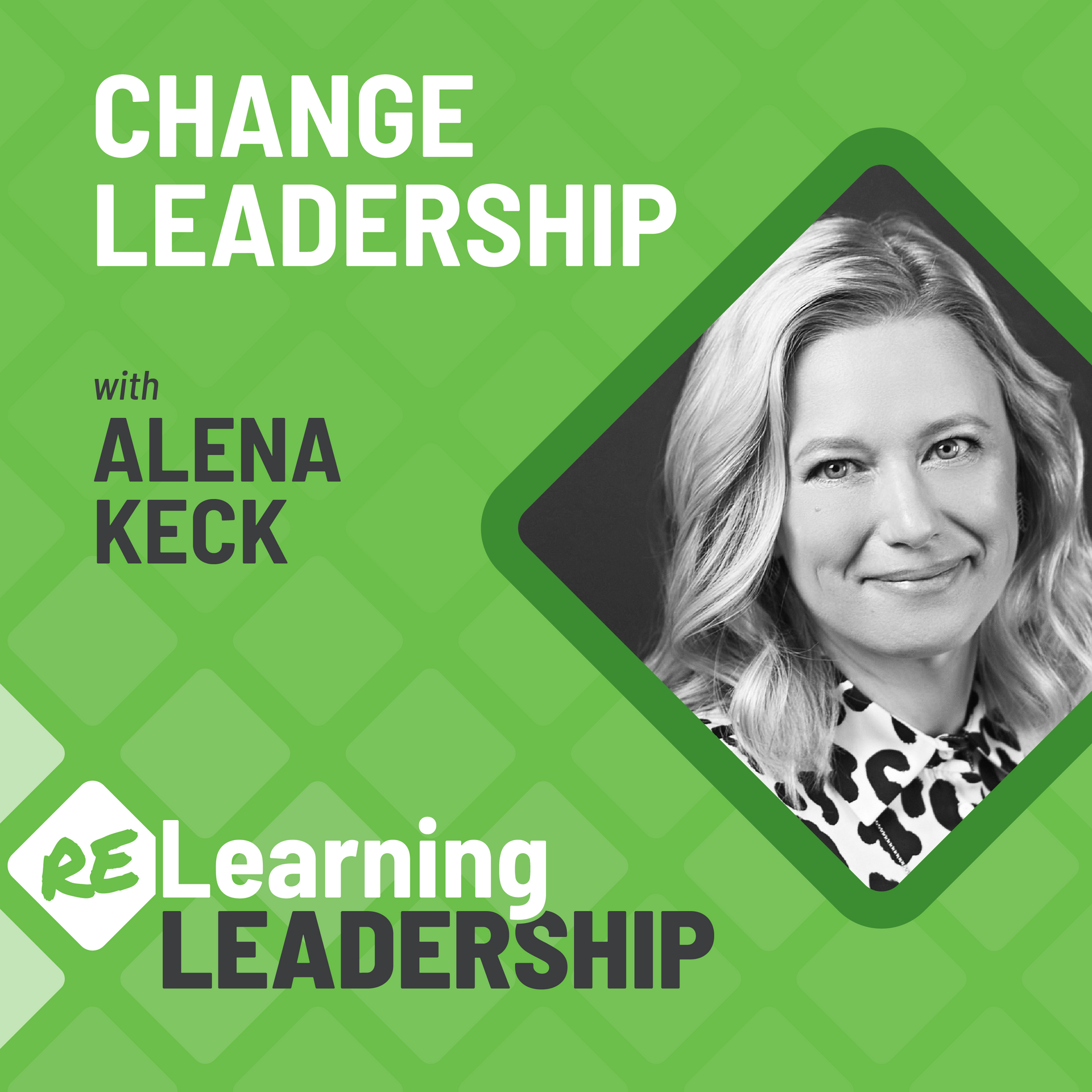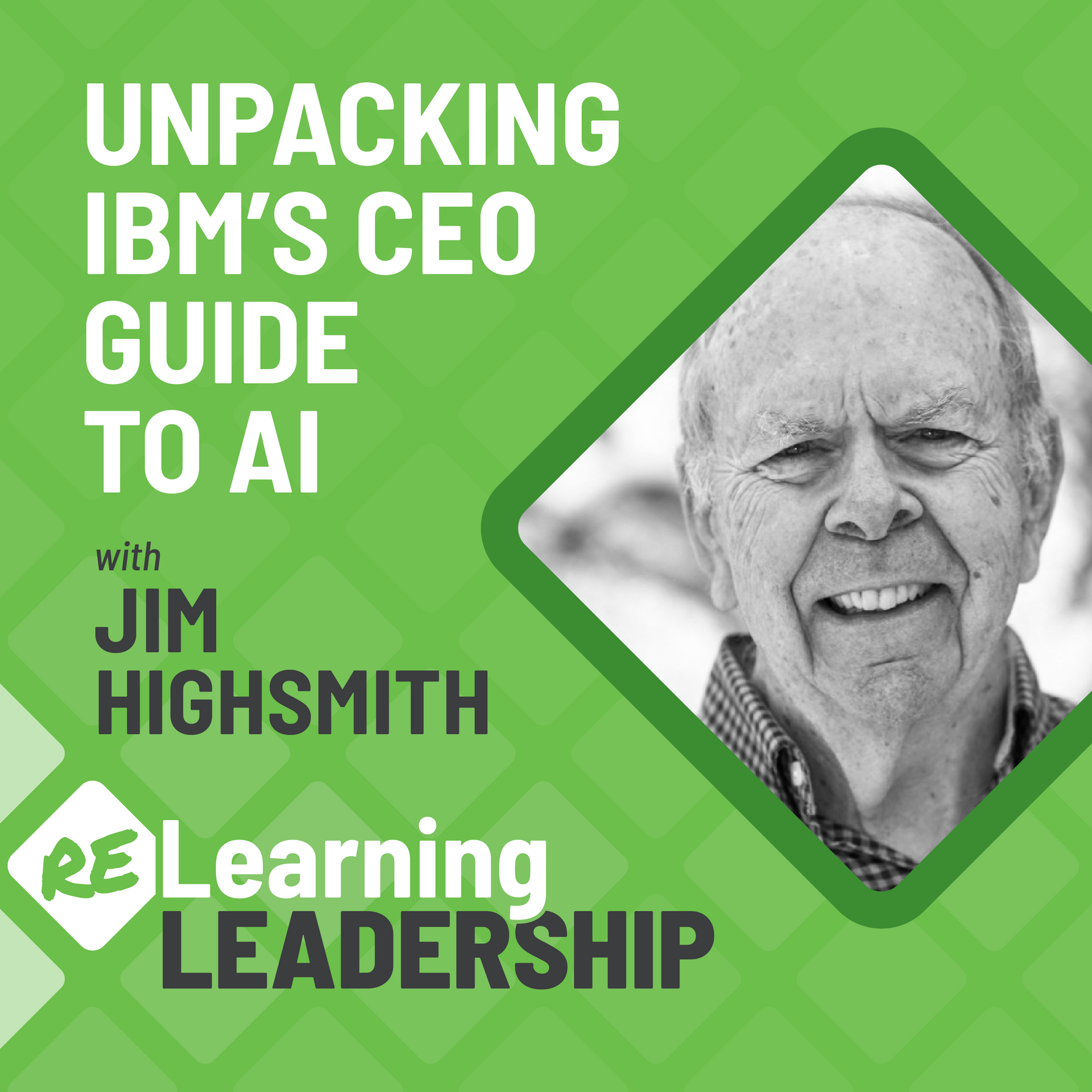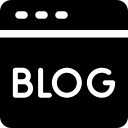51: Change Fatigue
How are you managing change fatigue?
For better or worse, all types of changes – personal and professional, big and small – impact our lives. In this episode of Relearning Leadership, Pete talks about his own experience managing change fatigue as well as how he has seen its effects in our communities, workplaces, and personal lives.
Listen now to hear his three ways in which we can acknowledge and manage how change can be tiring – and how to reframe it to be reinvigorating.
Relearning from this episode…
Impact of Change on Individuals and Organizations
People bring their entire lives, including personal and family experiences, to the workplace. Leaders should acknowledge and address the broader context of employees' lives, understanding that work-related changes are just a small part of a larger system. Change can lead to feelings of distraction, exhaustion, stress, and pressure, but change can also be positive, fostering clarity, focus, and personal development. Leaders need to be aware of how change affects individuals and be mindful of the potential stressors associated with it.
Leadership as Agents of Change
Building a supportive community is essential for leaders to share experiences, frustrations, and insights, emphasizing the value of conversations and mutual support. Effective leadership involves recognizing that change is evolutionary, involving both progress and setbacks, and engaging others in the change process. Mindset matters in leadership, requiring self-reflection, authenticity, and a clear understanding of why change is necessary. Leaders are encouraged to celebrate continuity in addition to change, recognizing the positive aspects of the existing environment and fostering a balanced perspective.
Explore:
Related Episodes
2: Navigating a New Boss
ALJ Guide Josh Forman shares his story of navigating the vast changes in his company and specifically dealing with a new COO. Following Josh's interview, Pete talks with Rachel Weston Rowell, a leadership teams coach who specializes in startup and scale-up organizations, to discuss Josh's story and what all leaders can learn from it.
Recent Episodes
Episode Transcript
Are you exhausted by change?
Welcome to another episode of Relearning Leadership, where we explore a specific leadership challenge and break it down to help improve your leadership, your organization, and, just possibly, your personal life.
I’m Pete Behrens, and today I want to focus on change fatigue.Thanks for joining us, and let’s dive in.
Now, each month, we run education sessions for our leaders who have chosen a path of growth and have joined our development program around growth mindset and catalyst behaviors.
Well, this past month, we did a session on change fatigue. And in preparing for that session, I sat down to try to figure out how change has been impacting—or even flooding—my world. And as I sat down to write it all down, it dawned on me: no wonder I’m so exhausted!
You know, I think about the societal change that has been impacting all of us, right? Through COVID, climate change, politics and war, and human rights change that’s going on in the world. Our community, you know, our small town here near Boulder, Colorado, that was devastated about a year-and-a-half ago by the Marshall Fire, destroying over 1,000 homes in our community, and how that’s still impacting our local community today. You know, my family, still dealing, in the last year-and-a-half, with the death of both of my parents. Finally, personally, having undergone heart surgery to address my flutter and irregular heartbeat.
You know, it was interesting—as I started and scheduled this session, I was thinking about work change; I was thinking about professional change. And yet, as I’m preparing for this topic, I was realizing—that all of that professional and work change is being dwarfed, at least in my world, being dwarfed by all of these other changes outside of work. And so, I was wondering, like, “Is this actually something that I’m feeling? Like, is this just me, or is this something that others in our community are sharing?”
So, as part of this session, we decided to poll our audience and ask, you know, “First of all, how is change feeling compared to previous times in your life?” So, in the past two years, you know, does change feel or less the same?”
90% of the respondents said change is either above or way above average for them than previous times in their world, right? I’m not alone here, right? I think we’re all feeling an intensity rise on change.
The second thing we asked was, “Where are you feeling this intensity of change? Where is this change coming from?” You know? And we asked the same questions: “Is it societal? Is it community? Is it professional? Is it personal? Is it family?” What surprised me out of this? Family came out as number one. Family! Now, professional was number two, followed by society and personal, before we got to community.
Thinking about this—right?—it leads me to, kind of, maybe my first point for leaders to think about here: people are human. How they come to work—they’re coming not just as the employee in a role. They’re coming into this work as a human with an entire world around them, where work change is only a small part of the larger system. I look at me, right? Professionally, yes, we’ve been doing a lot of change at Agile Leadership Journey. Right? We’ve been building a brand; we’ve been building a platform. We’ve been building and redesigning programs over the last few years. We’ve been building a Guide community. Just in the last two years alone—I had to even ask—we’ve got 27 new Guides in our community. Right? That’s a lot of change! It’s the other stuff that’s dwarfing it. And the others in our community are feeling the same. Those family changes, the personal changes, are dwarfing some of the changes at work.
So, leaders, recognize and address the entire human.
We also asked our participants about how change was impacting their world. And, you know, not surprising: we ran into items around distraction, around exhaustion and stress, around pressure. Even health concerns. And, you know, we’ve seen many studies linking change to stress and stress to health. And this isn’t immune to any of those types of changes in our world.
But interestingly, there were other comments around how change helped create clarity and focus, right? It helped leaders prioritize and find what’s most important. And I just love how the creative mind can take lemons and create lemonade.
You know, we, in fact, even talked about how change was incredibly positive. People shared change that was personally motivated, where they were looking at things like a Master’s Degree, or they did personal development and growth. They set and maintained boundaries. They even came up with something that’s like, more grateful or a positive-oriented mindset.
You know, when change can be personally motivated and driven, it can be purposeful. It can be fun. It can be inspiring. And change is good.
But the bulk of our session was actually not focused on the change hitting us, but rather as our role as agents of change, of catalyst, right? It’s hard. Agile Leadership Journey is about catalyst leadership, catalyzing change in something that’s valuable to us, right? This could be a project, a team, an organization, a culture, a mission, right? And change fatigue can happen when we’re trying to change something or someone else, and they’re just not on the same page as we are, right? Change fatigue happens as we metaphorically, kind of, beat our head against that wall, over and over and over.
And so, as change agents, we can run out of gas. We can lose energy. We can lose hope. And so, how do we maintain that hope? How do we fill our tank? How do we not only get people aligned on this change but actually inspire people to take a change journey with us? And so, I’d like to maybe comment on four things that our conversation drew out.
Okay, point number one: you’re not alone. We can join or build a community inside our organization or outside of it. Our Agile Leadership Journey community, in fact, is such a community: leaders and Guides. You know, it’s a place to share, a place to learn, a place to help others who are on that same journey.
You know, last spring, I was running a cohort. And the whole point of the cohort was driving change within an organization. And I was starting to get frustrated because the leaders were unable to actually drive change. And so, I’m thinking, “Well, this is pointless. Like, why are we in this cohort if we can’t actually do this?” Not because they weren’t capable or competent, but because they didn’t really have the access or the respect or the role to do so. And they kept pushing back on me and saying, “Pete, this is valuable!” I was like, “What do you mean?” And they said, “Having the conversations, having the support, talking about these things, hearing from others was incredibly valuable.” The conversations were as or more valuable than the change itself.
So, what I encourage you to think about is—find, seek out, build a community where you can find some like-minded people who value what you value and can help you when you get frustrated and beat your head against the wall, run out of gas, run out of energy—they can help pick you up.
Point number two: change is evolutionary before it’s revolutionary. There are many steps, forwards and backwards, that are required before a tide of change starts to swell and change might become a little more obvious. You know, resistance to change is human; it’s personal. We can introduce change, but we can’t change anyone else. William Bridges, who wrote Managing Transitions, one of the books on my shelf, differentiates change from transition. Change is physical; change is an event. Change is something that we can cause. Transition, on the other hand, is psychological. It’s a journey that every one of us must take alone. So, what does that mean for us as leaders?
We’ve got to engage others in the change process, in the design of change, in the execution of change. We’ve got to celebrate small wins. We’ve got to recognize small steps and experiments. And we’ve got to know that setbacks and failure are part of the journey. It’s, in fact, the journey where we’re going to be spending most of our time. And so, while the destination is calling us, our focus needs to be on those walking with us.
Point number three: mindset matters. You know that old serenity prayer: Grant me the serenity to accept the things I cannot change, the courage to change the things I can, and the wisdom to know the difference. Well, that applies here. Choosing our battles and being in the right mindset makes a difference.
So, before we go and try to change something else, or somebody else, let’s look inside at our own, right? How are we showing up? What is our orientation of change? Are we walking the walk? Why is it that we are on this change journey? Why should anyone trust you, or even join us, on this journey?
And finally, point number four: change is only a fraction of the world around us. You know, change strives for our attention, like the star of a show getting the spotlight. And you’ve got the rest of the cast and the setting there to support them. Change is that star. Continuity is the cast. I encourage you, once in a while, to look away from the star and look at the cast. Look away from change, and look at continuity and celebrate it.
For me, what does this look like? Personally, I’m still able to live a happy and healthy life, even as I’m aging. You know, my work and life partner, Jana, is an incredible force of good in my life, and my children are healthy and strong. And yes, while my community has gone through a pretty tremendous fire and devastation, it’s still an incredible force of support, and it’s fun to be with. And finally, our Agile Leadership Journey. The team we have assembled there is a group of rock stars, you know? It allows me and our team to co-create to build that platform to support change, to build new programs and, you know, grow that community.
So, I encourage you, as a leader, to not only focus on the change, but really, once and a while, look away and celebrate the continuity in life.
So, I’ll just leave you with two quotes, the first from John Maxwell: “Change is inevitable. But growth is optional.” Your reaction, your mindset around change, is a choice you make at every moment.
The second quote is from Albert Einstein: “The measure of intelligence is the ability to change.” We, here at the Agile Leadership Journey, are on a change path, and we hope to see you here.
So, thank you for joining me today. And enjoy your change journey!
Relearning Leadership is the official podcast of the Agile Leadership Journey. Together, we build better leaders. It’s hosted by me, Pete Behrens, with contributions from our global Guide community. It’s produced by Ryan Dugan. With music by Joy Zimmerman. If you enjoyed this episode, please subscribe, leave us a review, or share a comment. Visit agileleadershipjourney.com/podcast, for guest profiles, episode references, transcripts, and to explore more about your own leadership journey.

